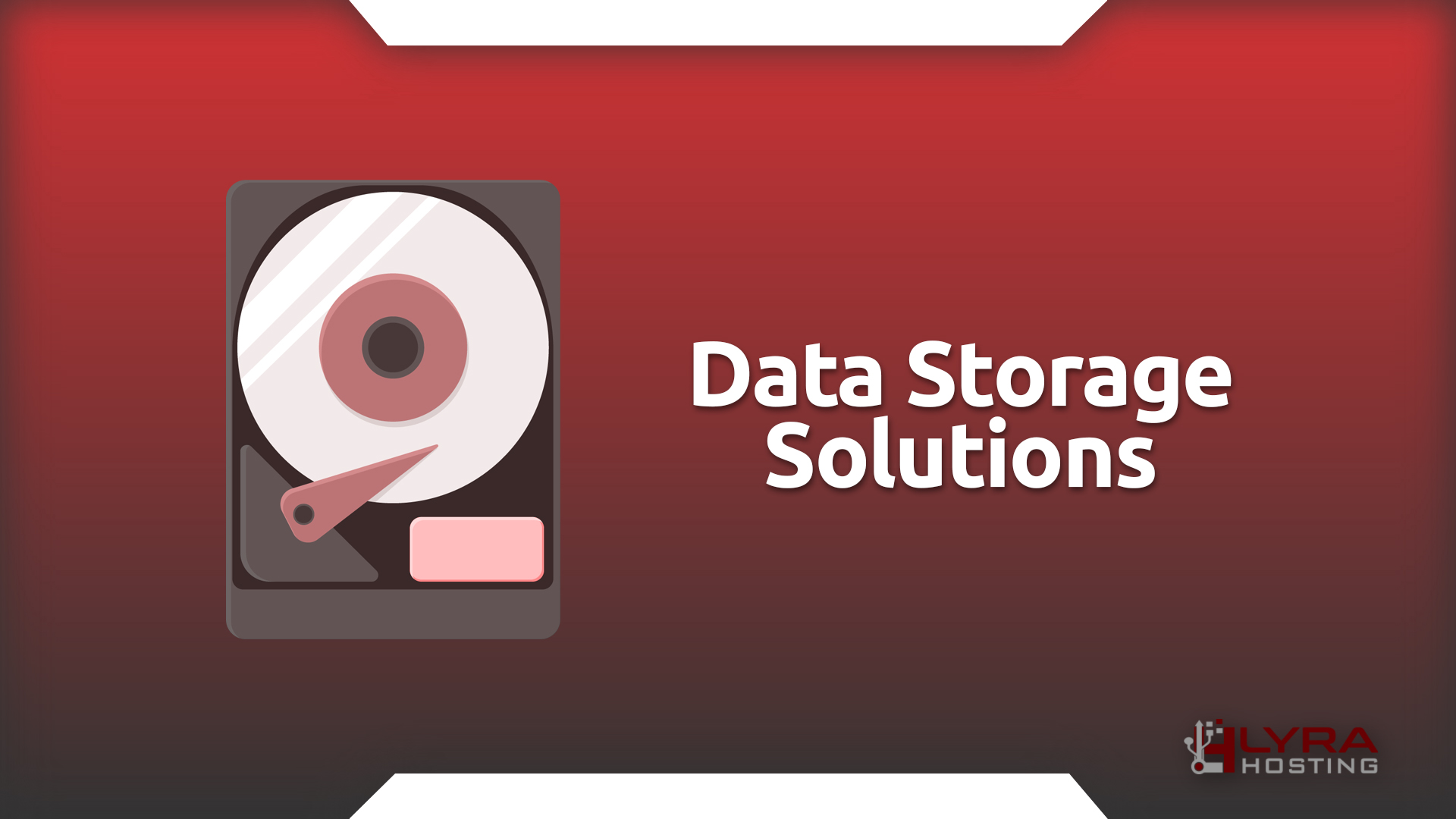The ABCs of Data Storage: From Storage VPS to Cloud

In our rapidly digitizing world, data has emerged as the new gold. Everything we do, from swiping a credit card to browsing the latest memes, generates data.
The need to store this colossal amount of information efficiently and securely has never been more paramount. This article provides an overview of the various storage solutions available today, shedding light on their features, benefits, and applications.
Read on to find the best storage solution for your business.
Hardware: HDD vs. SSD
When it comes to personal computers and servers, the primary debate in data storage revolves around Hard Disk Drives (HDDs) and Solid State Drives (SSDs).
HDDs have been around for decades. They work by writing data onto spinning disks using a magnetic head. The advantages of HDDs are their larger storage capacity and lower cost per gigabyte. However, they come with some downsides: they are slower, bulkier, and more prone to physical damage due to their moving parts.
A newer entrant, SSDs store data using NAND-based flash memory. This lack of moving parts makes SSDs faster, more durable, and energy-efficient. The trade-off is a higher cost per gigabyte, though prices have been steadily dropping.
In summary, while HDDs might still be preferred for tasks that require large storage capacities without breaking the bank, SSDs are fast becoming the standard for tasks that demand speed and reliability.
Data Storage Solutions
Beyond the individual drives in our devices, there are broader systems designed to manage, store, and access data on a larger scale.
Direct Attached Storage (DAS)
At its core, DAS is storage simplicity personified. As the name suggests, it refers to storage devices directly connected to a single user’s PC or a server, such as internal hard drives or external drives connected via USB or Thunderbolt.
Being a direct-attach setup, it provides a rapid data transfer rate, perfect for tasks that require high-speed access to large amounts of data, such as video editing. However, its simplicity also means it doesn’t natively support remote access or sharing across a network.
DAS is typically best suited for individual users or scenarios where data doesn’t need to be shared or accessed across a network.
Network Attached Storage (NAS)
Elevating the storage game is the NAS system, a dedicated device connected to a local network that offers a centralized storage solution. More than just storage, a NAS device typically comes equipped with its own operating system, allowing for app installations, media streaming, and more.
The beauty of NAS lies in its dual role: it not only provides a central repository accessible by multiple users and devices but also serves as a personal cloud, enabling remote access from anywhere. Security features, RAID configurations for data redundancy, and easy scalability make NAS a favored choice for small to medium-sized businesses.
Storage Area Network (SAN)
On the more complex end of the spectrum is the SAN, a dedicated high-speed network that connects storage devices with servers.
Unlike DAS and NAS, which are more about direct and file-level storage, respectively, a SAN deals with block-level storage, providing a single solution for multiple servers. This makes SANs particularly adept at handling large, dynamic data sets, such as databases or virtualized environments.
Their architecture ensures high availability and redundancy, but it also requires dedicated cabling, switches, and more specialized management skills. Given their complexity and cost, SANs are usually the domain of larger enterprises or data centers where performance and scalability are a priority.
Cloud Storage Solutions
The cloud has revolutionized the way we think about data storage. Rather than being confined to physical locations or devices, data can now be stored virtually in data centers scattered across the globe.
File Storage Services: Platforms like Dropbox, Google Drive, and Microsoft OneDrive fall into this category. They are ideal for individual users and businesses alike, offering easy-to-use interfaces, collaboration tools, and seamless integration with other services.
Object Storage Services: Amazon S3, Google Cloud Storage, and Azure Blob Storage are examples. These services store data as objects in a flat address space, making them ideal for scalable, web-based applications.
Block Storage Services: Solutions like AWS Elastic Block Store or Google Persistent Disk are suited for databases or storage for virtual machines, providing low-latency access to data blocks.
The allure of cloud storage is manifold: scalability, flexibility, reduced overheads, and the ability to access data from anywhere with an internet connection. However, it also introduces concerns related to data security, compliance, and ongoing costs.
Storage VPS Servers
A Storage VPS (Virtual Private Server) is essentially a server designed specifically for data storage tasks. The underlying infrastructure involves one physical server being divided into multiple virtual servers using virtualization technology. Each virtual server operates in an isolated environment with its own dedicated resources, OS, and functionalities.
So, how does this solution compare to the types of storage mentioned in this article?
Similar to NAS, a Storage VPS provides remote access and centralized storage. While NAS is often a dedicated physical device on a local network, a Storage VPS is a virtual server hosted by a service provider, accessible over the internet. Just like NAS, Storage VPS can be accessed by multiple users and offers data redundancy features.
Storage VPS can also be viewed as a subset of cloud storage solutions. That’s because it provides some of the benefits of cloud storage, such as remote access, scalability, and reduced overheads.
But unlike generic cloud storage services like Dropbox or Google Drive, a Storage VPS provides more control and customization options to the user. It is closer to a hybrid between traditional cloud storage and IaaS (Infrastructure as a Service) solutions. Users have more direct control over the environment, including the OS and installed software.
Final Words
The landscape of data storage is vast and varied, catering to different needs, budgets, and applications. From personal choices between HDDs and SSDs to enterprise-level decisions about NAS, SAN, or cloud solutions, understanding the nuances can aid in making informed decisions.
As data continues to grow exponentially, staying abreast of the latest advancements in storage technology will be pivotal in harnessing its true potential.
Lyra Hosting Storage VPS Servers
Lyra Hosting storage VPS servers can help you improve the accessibility and security of your data. Let an industry expert take care of your data storage needs and stay ahead of the competition.








